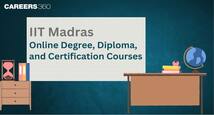- Introduction and Parallel Computing
- Heterogeneous Systems
- Introduction to OpenCL
Introduction to OpenCL on FPGAs
Get familiar with the basics and syntax of OpenCL language and its applications in the FPGA environment with the ...Read more
Beginner
Online
5 Weeks
Free
Quick Facts
| particular | details | |||
|---|---|---|---|---|
|
Medium of instructions
English
|
Mode of learning
Self study
|
Mode of Delivery
Video and Text Based
|
Course overview
Much like Nvidia’s CUDA programming, OpenCL is a standard for writing parallel programs, especially for heterogeneous systems. OpenCL instructions are also synthesised into the FPGL environment. The Introduction to OpenCL on FPGAs course will discuss the basics of OpenCL standards. You will also learn about the platform, programming models, execution, and memory that define the OpenCL specification.
Moreover, the Introduction to OpenCL on FPGAs training programme will also cover the syntax of the OpenCL language. The differences and similarities between CUDA and OpenCL will be highlighted as well. Lastly, the course will navigate through the applications of OpenCL language and its advantages.
Dennis Ejorh and Nikhil Venkatesh will be your course instructors. The Introduction to OpenCL on FPGAs online course content will be delivered through readings, video lectures, and hands-on practice exercises. Lastly, if you pay for the certificate option, you will also receive a completion certificate, which you can use to highlight your skills and improve your career prospects.
The highlights
- An Intel offering
- Shareable certificate upon completion
- Adjustable deadlines
- Free enrolment option available
- Subtitles available in multiple languages
- Beginner-level training
- 100% online learning
- Takes approximately 16 hours to complete
Program offerings
- Financial aid available
- Beginner-level training
- 5-weeks training
- High-quality videos
- Reading material and exercises
- Flexible deadlines
- Certificate of completion
- Self-paced learning
Course and certificate fees
Type of course
Free
If you've chosen the audit option, the Introduction to OpenCL on FPGAs training course is free to access. But to get access to the course completion certificate, it’s necessary to pay the course fee. Financial aid option is also available to those who can’t afford the fee.
Introduction to OpenCL on FPGAs fee structure
Course option | Fee in INR |
Introduction to OpenCL on FPGAs – Audit | FREE |
Introduction to OpenCL on FPGAs – With certificate | Rs.2,378 |
certificate availability
Yes
certificate providing authority
Coursera
certificate fees
₹2,378
What you will learn
By the end of the Introduction to OpenCL on FPGAs course, you will gain an in-depth understanding of topics like:
- Executing OpenCL Kernels
- Heterogeneous Parallel Computing and its challenges
- NDRange Kernels
- OpenCL on Intel FPGAs
- OpenCL Execution
The syllabus
Week 1: Heterogeneous Parallel Computing
Videos
Practice Exercises
- Introduction and Parallel Computing
- Heterogeneous Systems
- Introduction to OpenCL
Week 2: OpenCL for Platform and Host-side Software
Videos
- Host and Device Interactions
- Host API and Platform Layer
- Runtime Layer API
Practice Exercises
- Host and Device Interactions
- Host API and Platform Layer
- Runtime Layer API
Week 3: Executing OpenCL Kernels
Videos
- OpenCL Kernels and Its Language Rules
- Compiling OpenCL Kernel to FPGAs
- OpenCL Execution
- Host and Kernel Execution
Practice Exercises
- OpenCL Kernels and its Language Rules
- Compiling OpenCL Kernel to FPGAs
- Open CL Execution
- Host and Kernel execution
Week 4: NDRange Kernels
Videos
- NDRange and Single Work-item Kernels
- Mapping NDRange OpenCL Kernels to FPGA
- NDRange Kernel Memory Model
Practice Exercises
- ND Range and Single Work-item Kernels
- Mapping ND Range OpenCL Kernels to FPGA
- ND Range Kernel Memory model
Week 5: OpenCL on Intel FPGAs
Videos
- The Intel FPGA SDK for OpenCL
- Debug Tools
- FPGA-specific Features
Practice Exercises
- The Intel FPGA SDK for OpenCL
- Debug Tools
- FPGA Specific Features
Admission details
- Visit the official URL to get to the Introduction to OpenCL on FPGAs programme webpage. After landing on the page, register to create your account.
- Peruse the course details carefully. After that, hit the “Enrol for Free’ button.
- Choose between the free or paid course option.
- Pay the course fee if you’ve chosen the certificate option. If you’ve chosen the free audit option, you’ll be directly enrolled in the programme.
Filling the form
You're not mandated to complete any application form to enrol in the Introduction to OpenCL on FPGAs programme. All you need to do is to log in to your Coursera account and click on the register button to start learning.
However, if you don’t own a Coursera account, you’ll need to fill a short application form, which requires you to fill in your name, email ID and generate a password. The option of signing up through your Google and Facebook ID is also available.
Scholarship Details
You can opt for the Introduction to OpenCL on FPGAs training’s financial aid. Just visit the financial aid portal on Coursera, and fill in the necessary details like your career goals, educational background, how the course will help your career, income, etc. Upon form submission, you will hear from Coursera within 10-15 days if it's approved or not.
How it helps
Some of the Introduction to OpenCL on FPGAs benefits include flexible deadlines, expert faculty, and top-notch video lectures. You also have the liberty to use the discussion forum to clear your doubts and get in touch with like-minded batchmates.
Besides, paying for the certificate programme unlocks a whole range of additional benefits, like improved career opportunities and the ability to display your new skills on platforms like LinkedIn.
Instructors
FAQs
Can I get a refund after I’ve paid for the certificate?
You can get a refund if you apply within two weeks of paying the fees.
What if I want a certificate but can’t pay for it?
If you can’t afford the certificate, you can apply for Coursera’s financial aid.
If I complete the course, do I get any University credentials?
No, the programme doesn’t explicitly provide any credits. Nevertheless, some colleges accept Coursera completion certificates for credits. Get in touch with your college to know more about this.
Is Introduction to OpenCL on FPGAs an advanced-level training?
No, Introduction to OpenCL on FPGAs is a beginner-level training course.
Can I share the certificate on any employment platforms?
Yes, the certificate is shareable on LinkedIn.
Articles
Popular Articles
Latest Articles
Similar Courses


C Programming Foundations
PW Skills


Jupyter Notebook
Great Learning


Eclipse Tutorial
Great Learning


Dev C++ Tutorial
Great Learning


Turbo C++
Great Learning


Coding For Beginners You Can Learn to Code
Simpliv Learning


Scripting and Programming Foundations
WGS via Edx


How to Code Simple Data
The University of British Columbia, Vancouver via Edx


Information Technology Fundamentals for Business P...
Polytechnic University of Valencia, Valencia via Edx


Introduction to C++
Microsoft Corporation via Edx
Courses of your Interest

Professional Certificate Course in Data Science
Newton School

JavaScript Foundations
PW Skills

Technical Analysis Series
PW Skills

Python Foundations
PW Skills

Getting Started with Generative AI APIs
Codio via Coursera

Generating code with ChatGPT API
Codio via Coursera

Prompt Engineering for ChatGPT
Vanderbilt via Coursera

Data Structures and Algorithms in Java
Great Learning

Angular7 for Beginners
Great Learning
More Courses by Intel

Introduction to Intel Distribution of OpenVino Too...
Intel via Coursera

Intel Network Academy - Network Transformation 101
Intel via Coursera

Intel Network Academy - Network Transformation 102
Intel via Coursera

 Brochure
Brochure Enquire
Enquire










